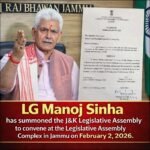Delhi Chief Minister Arvind Kejriwal’s outreach to opposition parties regarding the central ordinance on bureaucrats’ transfers in Delhi is primarily an issue-based move. His party, the Aam Aadmi Party (AAP), does not plan to change its assembly election plans in states such as Madhya Pradesh, Chhattisgarh, and Rajasthan. Kejriwal sought a meeting with Congress President Sonia Gandhi and Rahul Gandhi to seek their support against the ordinance and discuss the political situation. The AAP is aware that without Congress support, its resistance to the replacement bill in the Rajya Sabha would likely fail, and the larger opposition would perceive the Congress’s refusal as arrogance.
The AAP has previously demonstrated flexibility, which some critics perceive as opportunism, by seeking Congress support despite their history of animosity. However, any meeting between the AAP and Congress leadership would trigger speculation about a possible reconciliation ahead of the upcoming general elections. The Congress sees this as an opportunity to understand the AAP’s stance in shaping a joint opposition front against the Bharatiya Janata Party (BJP) in the 2024 elections. However, some members of the Delhi Congress, including Ajay Maken and Alka Lamba, have expressed reservations about collaborating with the AAP.
While the AAP plans to contest assembly elections in Madhya Pradesh, Haryana, Chhattisgarh, and Rajasthan, where the Congress has a strong presence, it is unclear if the AAP will adjust its electoral strategy if the Congress supports them in the Rajya Sabha. The party emphasizes that its outreach over the ordinance is issue-based and that it will fight the assembly polls alone to expand its organization. However, its approach for the Lok Sabha elections is yet to be determined.










